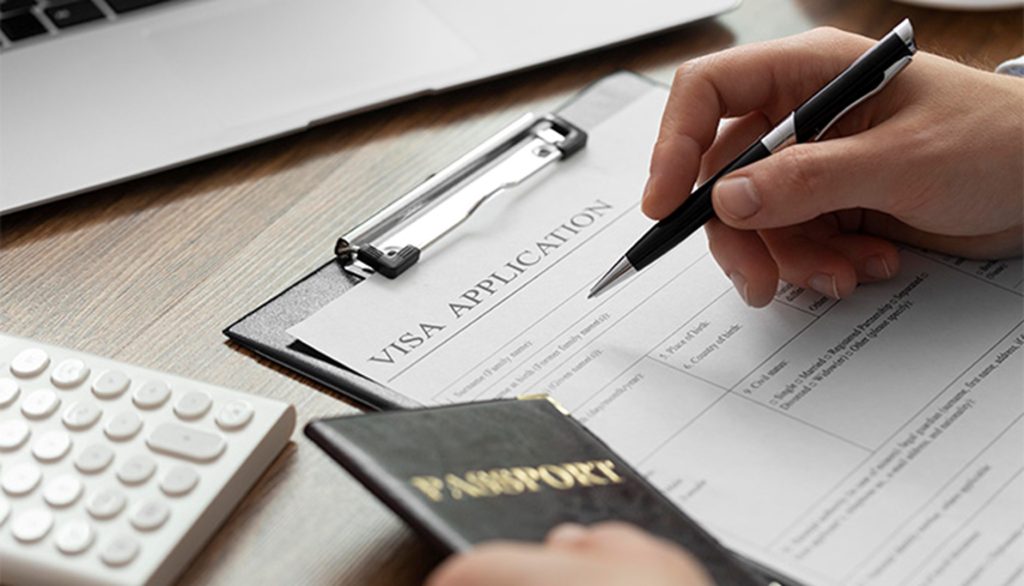
The United Arab Emirates (UAE) has emerged as a thriving hub for professionals from around the world seeking employment opportunities. To legally work in the UAE, individuals must obtain the appropriate work permit and visa.
The UAE recognizes the significant contribution of international movers in facilitating global relocations, and as such, offers specialized visa categories designed to cater to the needs of professionals in the international moving industry. This blog post aims to provide a comprehensive analysis of the various visa types and requirements for work permits in the UAE, shedding light on the procedures and criteria involved.
Employment Visa:
The UAE offers specific visa categories for international movers, recognizing their important role in global relocations. The most common type of visa for work in the UAE is the Employment Visa. To obtain this visa, an individual must have a job offer from a UAE-based employer. The employer serves as the sponsor and is responsible for initiating the visa application process. The main requirements for an Employment Visa include a valid employment contract, academic/professional qualifications, medical fitness test results, and a clear criminal record. The visa is typically valid for two to three years and can be renewed. The applicant must also undergo a medical examination to ensure they are fit to work in the country.
Investor Visa:
The Investor Visa is designed for individuals who are investing in the UAE or establishing their own business. The specific requirements and investment thresholds vary depending on the emirate. Generally, applicants must present a comprehensive business plan, proof of investment, and demonstrate financial stability. The minimum investment amount can range from AED 10,000 to several million dirhams, depending on the type of business and location. The Investor Visa grants the holder the right to work and reside in the UAE for a specified period. Additionally, the investor may be required to provide proof of a trade license, lease agreement, and share capital.
Freelancer Permit:
The UAE offers a Freelancer Permit for individuals who wish to work as independent contractors or freelancers. This type of visa allows professionals to provide services to multiple clients without being tied to a specific employer. To obtain a Freelancer Permit, applicants must provide proof of professional qualifications, a portfolio of work, and proof of financial stability. The permit is usually valid for one year and can be renewed. Freelancers may also need to submit a bank reference letter, a no-objection certificate from their current employer (if applicable), and a copy of their trade license, if they have one. Relocating to Dubai from the UK presents an exciting opportunity to embrace a new lifestyle and explore the thriving economy and cultural diversity of the UAE.
Mission Visa:
The Mission Visa is applicable to individuals employed by foreign companies that have projects or contracts with UAE-based organizations. This visa is usually valid for a short duration and requires sponsorship from the UAE company. The applicant must provide proof of employment and an invitation letter from the sponsoring organization. Additionally, the sponsoring company must submit relevant documents, such as a copy of their commercial license and a copy of the employment contract. The Mission Visa is typically issued for a specific project or contract and is valid for the duration of the project.
Student Visa:
Students seeking education in the UAE can apply for a Student Visa. This visa is issued by educational institutions and allows students to study and work part-time while pursuing their education. Applicants must be accepted by a recognized UAE educational institution and provide evidence of financial support. The student visa is typically valid for the duration of the course of study, with the possibility of renewal. Students are required to enroll in a full-time program and may be permitted to work part-time, usually limited to a maximum of 20 hours per week.
Conclusion:
Obtaining the right visa and work permit is essential for individuals looking to work legally in the UAE. The UAE offers various visa types to cater to different employment scenarios, including Employment Visas, Investor Visas, Freelancer Permits, Mission Visas, and Student Visas. Each visa has its own specific requirements and eligibility criteria, which must be carefully followed. It is advisable to consult with the UAE embassy or a reliable immigration service to ensure a smooth and successful visa application process. By fulfilling the necessary requirements, individuals can seize the abundant opportunities that the UAE has to offer. The UAE provides a promising environment for international movers to grow their careers, thanks to its prime location, excellent infrastructure, and thriving economy.

